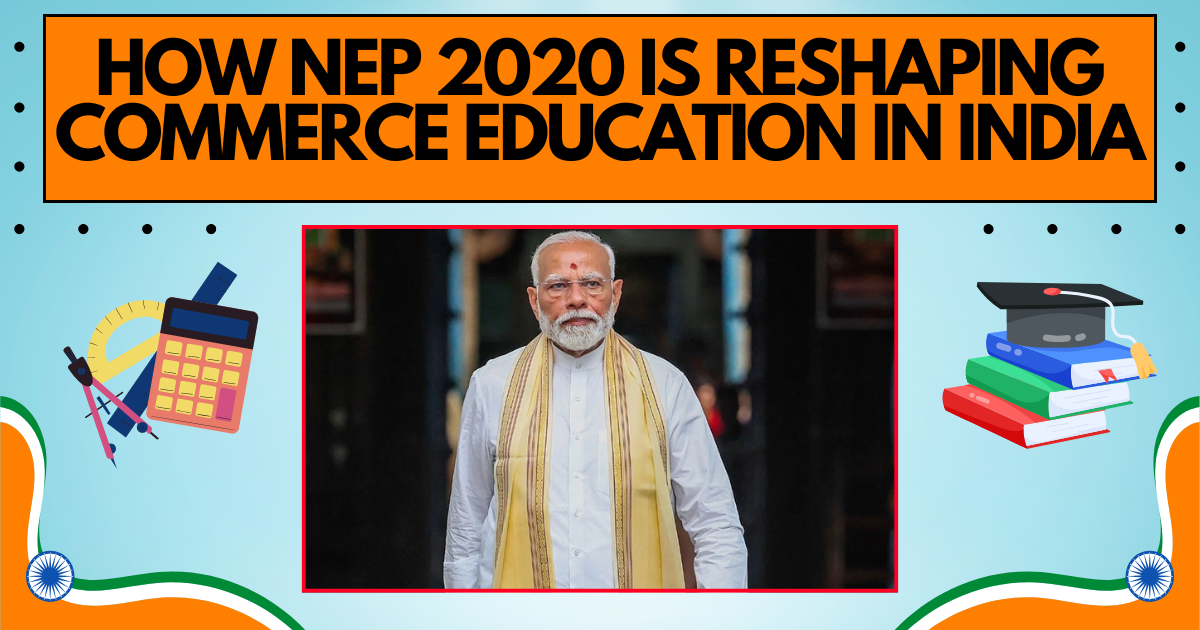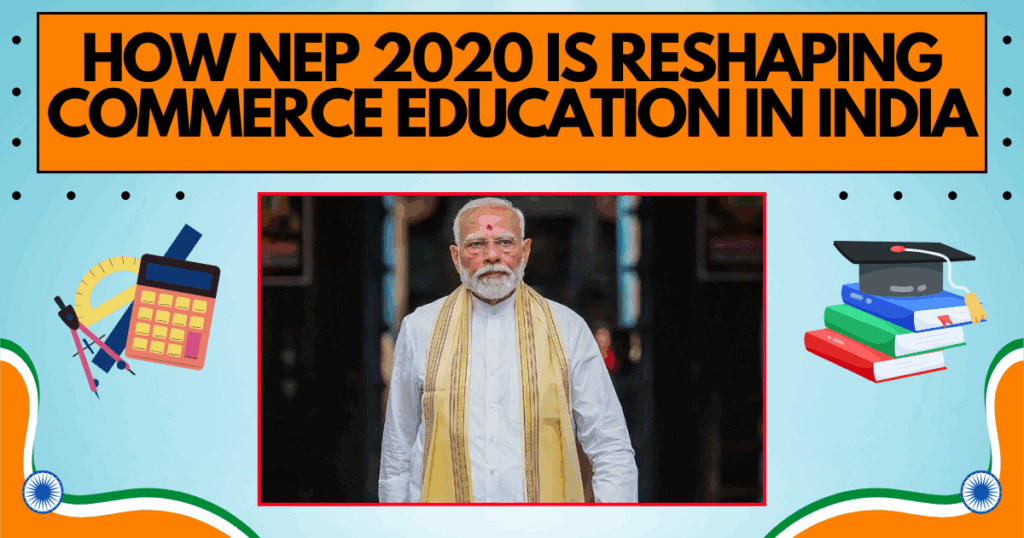How NEP 2020 Is Reshaping Commerce Education in India. The NEP (National Education Policy) 2020 is a policy launched by the government to provide quality education to students and improve the educational system of India. This policy has made a significant impact on the commerce education of India. NEP aims to transform India into a global knowledge superpower, nurturing innovative and skilled individuals. The commerce education system has enhanced so many as compared to previous years. To know more about the topic “How NEP 2020 Is Reshaping Commerce Education in India,” read the complete article.
How NEP 2020 Is Reshaping Commerce Education in India
The National Education Policy 2020 is the first education policy of the 21st century and aims to solve the many increasing development imperatives of our country. NEP lays particular emphasis on the development of the creative potential of each individual. The NEP provides to all students, irrespective of their place of residence, a quality education system, with particular focus on historically marginalized, disadvantaged, and underrepresented groups. Because it impacts every economic sector, including banking, manufacturing, services, and technological advancements, the study of commerce and management has a significant positive impact on the country’s economy.

The commerce discipline encompasses various fields, including accounting, finance, economics, management, and entrepreneurship. It serves as a vital bridge between academia and industry, preparing students for diverse careers in the business world. The primary goal is for India to have an educational system by 2040 that is second to none, with equitable access to the highest-quality education for all learners regardless of social or economic background.
Key Policy Changes Affecting Commerce Education
The National Education Policy 2020 (NEP 2020) marks the start of a series of transformative modifications that have far-reaching consequences for commerce education in India. Among the significant policy adjustments are multiple provisions that stand to alter how commerce education is organized and delivered. One of the major changes introduced by NEP 2020 is the prioritization of a multidisciplinary strategy. The policy understands that the challenges of the modern world are often multifaceted, which calls for a broad skill set and a complex understanding of various disciplines. This shift aligns with the core philosophy of commerce education, as it bridges the gap between academic domains, encouraging students to explore subjects beyond the confines of traditional commerce.
NEP 2020 also encourages academic flexibility, permitting students to select a diverse range of subjects across disciplines. This flexibility opens up new possibilities for commerce students to complement their main studies with subjects such as mathematics, humanities, or the sciences. Such interdisciplinary learning fosters a holistic understanding of complex issues and promotes a well-rounded educational experience. Moreover, the policy proposes the integration of vocational and skill-based education into mainstream academic programs.
Challenges in Traditional Commerce Education
In India, commerce education has traditionally emphasized theoretical knowledge over the development of practical skills and interdisciplinary knowledge. Gupta (2020) claims that the primary focus of commerce education has been on fundamental disciplines like accounting, economics, and business law, with less attention paid to newer areas like entrepreneurship, digital business, and financial technologies (fintech).
The current model of commerce education, according to scholars like Sharma (2021), has not been able to keep up with the evolving demands of the corporate world. Many institutions’ curricula are inflexible, built around out-of-date material, and unable to adapt to emerging trends like globalization, digitalization, and transdisciplinary knowledge. The abilities that graduates in commerce possess and the skills that industries need differ noticeably, according to a study by Jain (2021).
The Future of Commerce Education
The National Education Policy (NEP) 2020 lays the groundwork for a promising future in commerce education, reinventing the field to meet the changing demands of students and the job market. NEP 2020’s multidisciplinary approach results in a future where commerce transcends its traditional boundaries. Commerce graduates will develop as adaptable professionals with a broader knowledge base, capable of solving complex, multidimensional problems. They will be prepared for careers not only in traditional finance and business sectors but also in developing fields that need a multifaceted skill set.
As NEP 2020 continues to progress, commerce education will increasingly illustrate the dynamic, interconnected nature of the global economy. Graduates will not only be educationally competent but also adaptable, innovative, and well-prepared to face the challenges and opportunities of the 21st century. This future promises to produce commerce professionals who are not just job seekers but also job creators, driving economic growth and innovation in India and beyond.








